The previous post of my Chinese mini-series ended with a historical moment for the Chinese people and for the Communist doctrine and ideology: the rise to power of Mao Zedong. This was also a turning point for the entire world.
Today, I want to focus on Maoist China and what happened after 1935. If you haven't read my previous two episodes, you can take a look here: The Chinese Civil War - Beginnings - Part. 1 & The Chinese Civil War - The Rise of Chinese Communism - Part. 2.
So, after Mao Zedong's warriors managed to stay alive, despite the significant weakening, Mao was quick to prepare a plan for his revolutionary war. They have venture out to villages and recruit the peasants, setting up bases. From one, they could make more across the countryside, organizing themselves. Using insurgent tactics, they could defend the bases. Of course, Mao predicted the Kuomintang would overrun them, forcing their retreat, but not without him engaging a guerilla phase. Attempting to outlast and simply survive longer, Mao could create a protracted war. Lastly, when this had sufficiently weakened the enemy and balanced the odds between the two parties, he would engage in a conventional war to seize power.
Whilst Mao got about doing this, Chiang had already pursued him North. But the generalissimo's persistence was not appreciated by those that saw the threat of the Japanese as impeding.
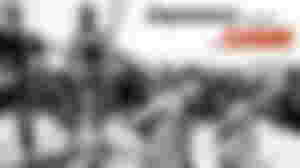
In December 1936, Chiang would be taken hostage by his own generals. Mao had earlier that year stated his willingness to form a second united front to address the Japanese, but Chiang refused to entertain such an idea. However, the generals made him agree and when Chiang had done so, he had them put to death. Yet, his cooperation would still reluctantly be given.
The Second United Front
Japan declared war on both Chinas in 1937 and began a massive assault onto the nation, or nations, actually. The Kuomintang held the most cities, so, of course, the Kuomintang took the brunt of the assault. Chiang would not trust the Communists enough to pull his army from the North, so the Kuomintang only continued to lose much ground and many men to the invaders, straining the people to a breaking point.
Mao used that disaffection to drive recruitment and was able to use his handful of victories against Japanese forces to do further. On December 1941, Japan declared war on the U.S. and Chiang saw this as an opportunity to hold and conserve his forces. - let the Americans do the fighting. This was tactically sound, but he lost much public respect for it.
As the tide turned in the Pacific and Japan withdrew from China, it became a mad dash to see who could liberate occupied territory. The CCP expanded much further than they had been able to pre-war.
In August 1945, a Japanese surrender provoked the proactive U.S. ambassador, Patrick Hurley, to lead talks between the Kuomintang and the CCP to see if peace could be achieved. Shockingly, they had agreed to start preparations for a coalition government, even setting up a temporary Council and forming a united army. Insane!
The negotiations would never be finalized though, as when Manchuria presented itself liberation, a race began and China fate would be decided there.
Away with imperialists
The Soviets invaded Manchuria and when the CCP's army arrived, the Soviets handed over Japanese stockpiles to them. The U.S. was also involved, as despite its claims of neutrality, it ushered Chiang's armies into the region on U.S. ships and aircrafts. The Kuomintang were able to force the CCP put of the cities and into the hills by December. As the CCP began to prepare a counter-attack, the U.S. intervened, trying to bargain a truce between them.

However, the Kuomintang had been in a position to overrun the Communists and Mao used this lull to better prepare for war. When the truce inevitably broke down in July 1946, Mao was initially pun on the back foot, but not destroyed like Chiang was bargaining on.
March 1947 saw Shanxi breached by the Kuomintang, but in Manchuria, guerilla tactics were starting to paint a bleak future for Chiang's occupation, his army's resources and manpower being slowly bled dry.
By 1948, it was clear Chiang could no longer effectively supply Manchuria, but he refused to pull out, refused to admit defeat. It would be hard for him to accept the balance had shifted so unfavorably for the Kuomintang. In March, Manchuria fell and the grand Communist defensive began.
In January 1949, Tianjin and Beijing fell, the North entirely conquered. Then, April was seeing them take Nanjing, then Shanghai and lastly Guangzhou, when Sen had first declared the military government.
On the 1st of October 1949, Mao proclaimed the establishment of the People's Republic of China, in their capital of Beijing, saying "We have stood up!".
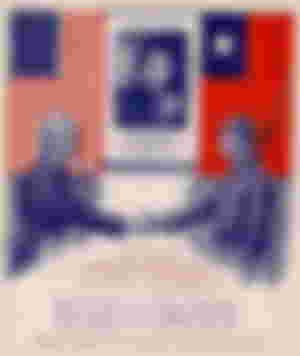
The People's Republic
When Chiang had lost control of the mainland, his government retreated to the city of Taipei, on the island of Taiwan. He continued as a president of the Republic of China and continued claiming sovereignty of China. It represented China in the U.N. until 1970 and to this day is still officially the Republic of China.
For the mainland after being liberated or conquered by the now godlike Mao Zedong, it would have his key Communist ideas thrust upon it. In a push to modernize the nation and take a great leap forward, he caused a famine that killed 30 million people. China under Mao was very much hit and miss.
For relations with Comintern and Soviets, Mao would denounce them as revisionist traitors in the 1960s, his split collapsing the idea of a cohesive world of Communism, as the only true Communists in Mao's eyes were his communists.
The civil war that China had lived for so many years finally put to rest a constantly shifting image of China, from an ancient, imperial dynasty, to the modernized communist state. However, that state was subject to many pitfalls, but persevered, much to the anxiety of the West. Its initial relation with Western states was highly tense, given the era of Cold War.
Today, it's calm, of course. China still remains the People's Republic, but for being a communist state, well, that's debatable. Its new relations with the outside world are heavily trade-oriented, as China after the long war looked outward for vitalization, not inward.

To step back though, it is interesting to think of what if it had been an alternative outcome? Whether that outcome would be better or worse is easily arguable.
My successful faucets!
PipeFlare & Hive ZCash - ZEC with tier 4 referral program
FreeCryptos: (DASH), (TRX), (ETH), (Cardano), (BNB), (LINK), (NEO), (LTC) & (BTC)
Stakecube (over 20 single click faucets per day)
Get Maiar for free! The future of money: powered by Elrond!
Join DeFi and get $30 of DFI. Join CakeDeFi now!!
Try Celsius and earn $20 for free.
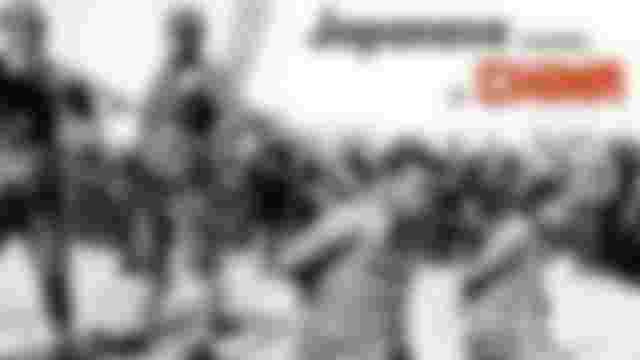

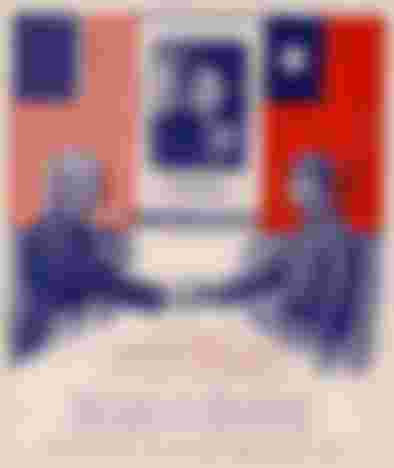
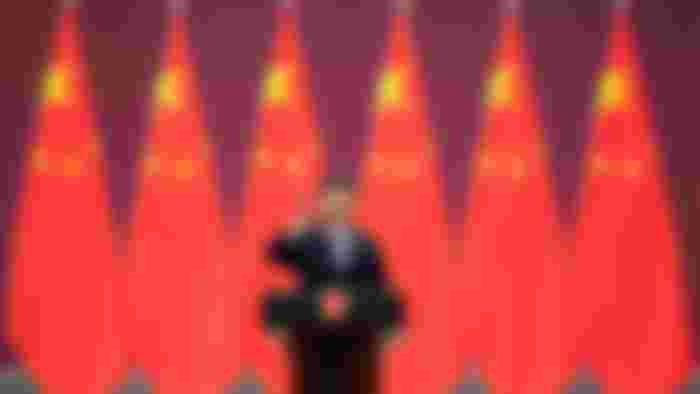
Thanks for another lesson of history and politics!